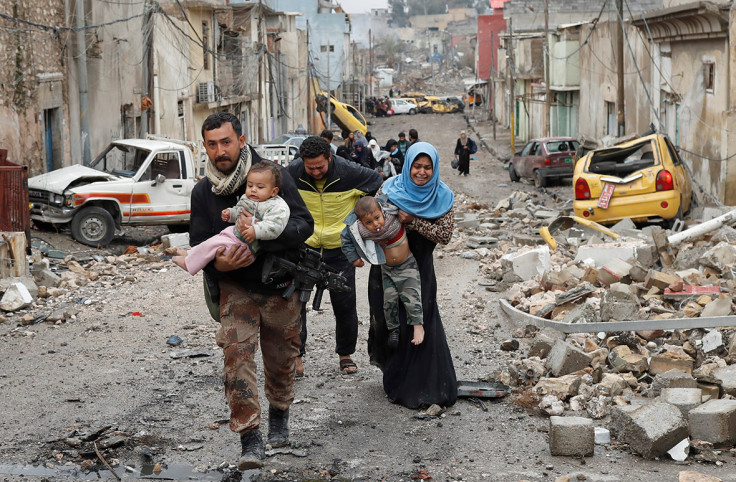Iraq desperately needs $90bn to repair war-torn country following Isis battles
Around 138,000 houses and flats have been damaged or completely destroyed by the bitter conflict, say experts
It will cost almost $90bn (£65.1bn) to rebuild war-torn Iraq after three years of bitter fighting with Islamic State (Isis).
Donors and investors were told the bill to replace housing and infrastructure destroyed by the conflict will amount to $88.2bn by Iraqi officials at an international conference held in neighbouring Kuwait on Monday (12 February).
Iraq Planning Minister Salman al-Jumaili said: "Rebuilding Iraq is restoring hope to Iraq, and restoring the stability of Iraq is stabilising the states of the region and the world."
The Middle Eastern nation declared victory over Islamic State in December, having taken back all virtually all the territory captured by the Islamic terror group in 2014 and 2015.
At the beginning of the war in 2014 Islamic State held almost a third of the territory inside Iraq, and controlled as much as 34,000 square miles across Iraq and neighbouring Syria, as it pushed to establish an ancient caliphate across the Middle East and beyond.
Iraqi forces are backed by an international coalition led by the US, which pounds militant strongholds from the air.
Housebuilding is the most urgent task for Iraq, said Raja Rehan Arshad, the lead disaster risk management specialist for the World Bank.

Around 138,000 houses and flats have been damaged, with half of them completely destroyed.
About 2.5 million Iraqis remain displaced by the unrelenting conflict, which saw Islamic militants accused of beheadings, crucifixions, slavery and rape.
Iraq needs around $22bn in the short term and another $66bn in the medium term, said the director-general of the country's planning ministry Qusay Adulfattah.
The US, the largest backer in the international coalition against Isis, has no plans to pledge any cash in this conference, American officials told Reuters.
However, the secretary-general of Iraq's Council of Ministers Mahdi al-Alaq said nations could it help by acting as guarantors with international lenders. He added there were early indications that some states are willing to do so.






















